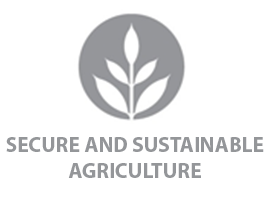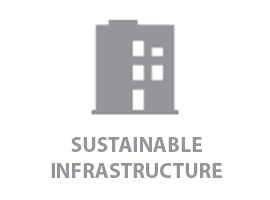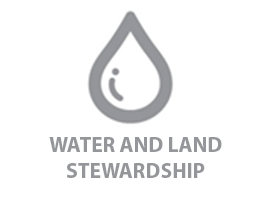Sanitation Technology Project
Research Menu
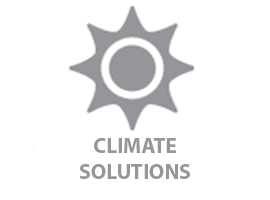 Current
Current
Funded
iSEE Work
 Current
Current
Funded
iSEE Work
Current
Funded
iSEE Work
Current
Funded
iSEE Work
Current
Funded
iSEE Work
Project Overview
![]()
![]() The Sanitation Technology Project fits into the iSEE research themes of Water and Land Stewardship and Sustainable Infrastructure.
The Sanitation Technology Project fits into the iSEE research themes of Water and Land Stewardship and Sustainable Infrastructure.
In Lead Investigator Jeremy Guest’s words:
The lack of proper sanitation costs an estimated $223 billion across the globe annually. There is a strong need for appropriate sanitation technologies to improve environmental and human health, especially in resource-limited settings where low sanitation access is coupled with economic poverty and scarce employment opportunities.
The iSEE team will evaluate the economic and environmental impact of sanitation systems under development and prioritize research to increase global access to sanitation.
We will model and assess several different designs of novel, “reinvented” toilets as well as modular treatment systems called Omni-Processors (OPs). While the toilets are typically designed to manage and treat bodily waste from one or more households, OP technologies represent neighborhood-scale treatment approaches for processing fecal matter from larger populations.
We will push forward research and development toward safe and economical sanitation — especially in locations where poorly-managed sewage threatens human health and freshwater supplies. We will build the necessary tools to tackle this global challenge, and will lay the groundwork for larger, interdisciplinary initiatives to advance sustainable development with colleagues from across campus.
Project News
- Summer 2021 Research Progress Update
- Summer 2020 Research Progress Update
- July 2019: Team publishes paper
- iSEE Helps Secure Gates Foundation Grant

The Gates team in the lab.
Primary Investigator Jeremy Guest and the team offer some updates on the work done on the 2019 grant from the Bill and Melinda Gates Foundation:
-
In the past year, the team has analyzed three additional sanitation systems designed to treat the excreta from hundreds to tens of thousands of people. The ability to scale treatment capacity has generally shown to reduce the user costs and in some cases the environmental impacts. By working with the designers of these technologies, the team has helped to identify key areas of improvement as well as how each technology may perform in different locations.
-
As part of a larger effort of creating open-source tools to model performance of sanitation systems, the team has helped to develop QSDsan (http://qsdsan.readthedocs.io/). This Python package leverages the quantitative sustainable design framework for integrated design, simulation, and sustainability evaluation of sanitation and resource recovery systems under uncertainty.
-
A range of proposals have been and are being developed. One pre-proposal was submitted to The Energy & Biosciences Institute (EBI)-Shell as part of their nature-based solutions thematic area. Additionally, the team is in discussion with the Gates Foundation about continuing and expanding their work on this project.
- The group has published multiple reports and five peer-reviewed publications related to improving sanitation and resource recovery systems; see full list in the Publications area below. The most recent, in Environmental Science & Technology, was titled “Defining Nutrient Co-Location Typologies for Human-Derived Supply and Crop Demand to Advance Resource Recovery” and merited a news release through the University of Illinois News Bureau (read it here >>>).
Primary Investigator Jeremy Guest offers some updates on the work done through iSEE seed funding and the 2019 grant from the Bill and Melinda Gates Foundation:
 During the past year, the team hosted a workshop at Makerere University in Kampala, Uganda (pictured), as well as at iSEE.
During the past year, the team hosted a workshop at Makerere University in Kampala, Uganda (pictured), as well as at iSEE.- Researchers made five conference presentations, and in June 2020 had a second paper published. This one, titled “Advancing Sustainable Sanitation and Agriculture through Investments in Human-Derived Nutrient Systems,” appears in Environmental Science & Technology.
- Finally, in February 2020 the team submitted a grant proposal to the National Science Foundation under its Growing Convergence Research program. Titled “GCR: Convergent Knowledge for Sustainable Human-Derived Resource Systems (HDRS),” this $3.6 million proposal remains pending.
In July 2019, PI Jeremy Guest, Assistant Professor of Natural Resources & Environmental Sciences Daniel C. Miller, and Civil & Environmental Engineering grad student John Trimmer published an article on human waste and its ties to environment and economy.
View the Illinois News Bureau article >>>
View “Resource Recovery from Sanitation to Enhance Ecosystem Services” in Nature Sustainability >>>
A team from the Department of Civil and Environmental Engineering (CEE) at the University of Illinois at Urbana-Champaign was awarded a $1 million grant from the Bill & Melinda Gates Foundation to evaluate the economic and environmental impact of sanitation systems under development and to prioritize research to increase global access to sanitation.
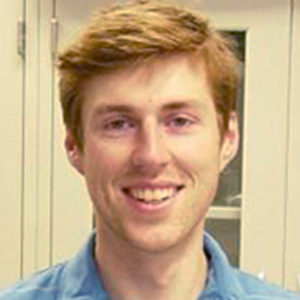
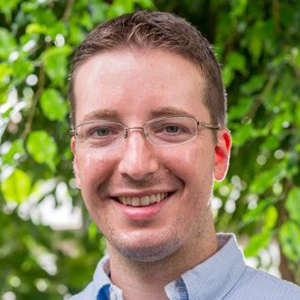 Led by CEE Assistant Professors Jeremy Guest and Roland Cusick, both Illinois Water Scholars, the grant will allow researchers to model and assess several different designs of novel, “reinvented” toilets as well as modular treatment systems called Omni-Processors (OPs). While the toilets are typically designed to manage and treat bodily waste from one or more households, OP technologies represent neighborhood-scale treatment approaches for processing fecal matter from larger populations. This partnership between Illinois and the Bill & Melinda Gates Foundation pushes forward research and development toward safe and economical sanitation — especially in locations where poorly-managed sewage threatens human health and freshwater supplies.
Led by CEE Assistant Professors Jeremy Guest and Roland Cusick, both Illinois Water Scholars, the grant will allow researchers to model and assess several different designs of novel, “reinvented” toilets as well as modular treatment systems called Omni-Processors (OPs). While the toilets are typically designed to manage and treat bodily waste from one or more households, OP technologies represent neighborhood-scale treatment approaches for processing fecal matter from larger populations. This partnership between Illinois and the Bill & Melinda Gates Foundation pushes forward research and development toward safe and economical sanitation — especially in locations where poorly-managed sewage threatens human health and freshwater supplies.
“This funding to Civil and Environmental Engineering will help us build the necessary tools to tackle this global challenge, and will lay the groundwork for larger, interdisciplinary initiatives to advance sustainable development with colleagues from across campus,” said Guest, who leveraged seed funding from the Institute for Sustainability, Energy, and Environment (iSEE) to prepare his successful proposal to the Gates Foundation.
According to the Gates Foundation, the lack of proper sanitation costs an estimated $223 billion across the globe annually. There is a strong need for appropriate sanitation technologies to improve environmental and human health, especially in resource-limited settings where low sanitation access is coupled with economic poverty and scarce employment opportunities.
The team will employ two postdoctoral researchers and five graduate students from CEE. Funding begins August 2019 and runs through June 2021.
The Team

The Gates Foundation-funded research team, led by Jeremy Guest (top left).
Principal Investigator (PI) and co-PIs
- Jeremy Guest (PI), Associate Professor of Civil & Environmental Engineering, University of Illinois at Urbana-Champaign
Departmental page >>>
Lab page >>> - Daniel Miller, Associate Professor of Natural Resources & Environmental Sciences, University of Illinois at Urbana-Champaign
Departmental page >>>
Lab page >>> - Assata Zerai, Professor of Sociology, Vice President for Equity & Inclusion, University of New Mexico
Departmental page >>> - Roland Cusick, Assistant Professor of Civil & Environmental Engineering, University of Illinois at Urbana-Champaign
Departmental page >>>
University of Illinois Operating Team (Postdocs, Technicians, Students)
- Victoria Morgan, Postdoctoral Research Associate
Guest Lab page >>> - Rebecca Andrus, Ph.D. Candidate in CEE
Guest Lab page >>> - Hannah Lohman, Ph.D. Candidate in CEE
Guest Lab page >>> - Christopher Muhawe, J.D. Candidate in Law
Guest Lab page >>> - Desarae Echevarria, M.S. Candidate in CEE
Guest Lab page >>> - Tyler Stephen, M.S. Candidate in CEE
Guest Lab page >>> - Lane To, Graduate Student
Guest Lab page >>> - Shion Watabe, M.S. Candidate in CEE
Guest Lab page >>>
Her iSEE research profile >>> - Xinyi Zhang, M.S. Candidate in CEE
Guest Lab page >>>
Former Team Members
- Steven Hand, former Postdoctoral Researcher; now Staff Professional, Carollo Engineers, Dallas, Texas
- Stetson Rowles, former Postdoctoral Researcher; now Assistant Professor of Civil Engineering and Construction, Georgia Southern University
- John Trimmer, former Postdoctoral Researcher; now Senior Research and Program Manager, Aquaya Institute, Kenya
- Diana Byrne, former Ph.D. Candidate in CEE; now Assistant Professor of Civil and Environmental Engineering, University of Kentucky
Publications & Presentations
Team members in bold:
- Publication: “Defining Nutrient Co-Location Typologies for Human-Derived Supply and Crop Demand to Advance Resource Recovery.” Echevarria, D., Trimmer, J.T., Cusick, R.D., Guest, J.S. Environmental Science & Technology. July 2021. U of I News Bureau news release on this publication >>>
- Publication: “Navigating Data Uncertainty and Modeling Assumptions in Quantitative Microbial Risk Assessment in an Informal Settlement in Kampala, Uganda.” Byrne, D.M., Hamilton, K.A., Houser, S.A., Mubasira, M., Katende, D., Lohman, H.A.C.; Trimmer, J.T., Banadda, N., Zerai, A., Guest, J.S. Environmental Science & Technology 55(8): 5463-5474. March 2021.
- Publication: “Navigating Multidimensional Social–Ecological System Trade-Offs across Sanitation Alternatives in an Urban Informal Settlement.” Trimmer, J.T., Lohman, H.A.C., Byrne, D.M., Houser, S.A., Jjuuko, F., Katende, D., Banadda, N., Zerai, A., Miller, D.C., Guest, J.S. Environmental Science & Technology 54(19): 12641-12653. August 2020.
- Publication: “Re-Envisioning Sanitation As a Human-Derived Resource System.” Trimmer, J.T., Miller, D.C., Byrne, D.M., Lohman, H.A.C., Banadda, N., Baylis, K., Cook, S.M., Cusick, R.D.; Jjuuko, F., Margenot, A.J., Zerai, A.; Guest, J.S. Environmental Science & Technology 54(17): 10466-10459. August 2020.
- Publication: “Advancing Sustainable Sanitation and Agriculture through Investments in Human-Derived Nutrient Systems.” Lohman, H., Trimmer, J.T., Katende, D., Mubasira, M., Nagirinya, M., Nsereko, F., Banadda, N., Cusick, R.D., Guest, J.S. Environmental Science & Technology. June 2020.
- Presentation: “Advancing Sustainable Sanitation and Agriculture through Investments in Human-Derived Nutrient Systems.” Lohman, H.A.C., Trimmer, J.T., Katende, D., Mubasira, M., Nagirinya, M., Nsereko, F., Banadda, N., Cusick, R.D., Guest, J.S. Association of Environmental Engineering and Science Professors Distinguished Lecturer Conference, Purdue University, West Lafayette, Ind., February 2020.
- Publication: “Preliminary Greenhouse Gas (GHG) Emissions Analysis of Four Gates Sanitation Systems: Emissions During Steady-State Operation.” Trimmer, J.T., Byrne, D.M., Lohman, H.A.C., Guest, J.S. Gates Open Research 4, 1. January 2020.
- Presentation: “Multidimensional Tradeoffs across Sanitation System Alternatives in an Informal Settlement in Kampala, Uganda.” Trimmer, J.T., Lohman, H.A.C., Byrne, D.M., Houser, S.A., Katende, D., Semakula, D., Banadda, N.E., Miller, D.C., Guest, J.S. Water and Health Conference: Where Science Meets Policy, University of North Carolina, Chapel Hill, N.C., October 2019.
- Presentation: “Prioritizing Research and Development Pathways for Decentralized Treatment of Bodily Waste.” Andrus, R.M., Trimmer, J.T., Byrne, D.M., Lohman, H.A.C., Morgenroth, E., Stoner, B.R., Hawkins, B.T., Guest, J.S. Water and Health Conference: Where Science Meets Policy, University of North Carolina, Chapel Hill, N.C., October 2019.
- Presentation: “Resource Recovery from Sanitation to Amplify Development: Navigating Global and Local Possibilities.” Trimmer, J.T. Northwest Biosolids, Biofest 2019: Tidal Changes (Keynote Address), Semiahmoo, Blaine, Wash., September 2019.
- Presentation: “Novel Financing Strategies to Simultaneously Advance Sanitation and Agriculture through Nutrient Recovery.” Lohman, H.A.C., Trimmer, J.T., Katende, D., Mubasira, M., Nagirinya, M., Nsereko, F., Banadda, N., Cusick, R.D., Guest, J.S. 3rd IWA Resource Recovery Conference 2019, Venice, Italy, September 2019.
- Publication: “Resource Recovery from Sanitation to Enhance Ecosystem Services.” Trimmer, J.T., Miller, D.C., Guest, J.S. Nature Sustainability 2, 681–690. July 2019.
